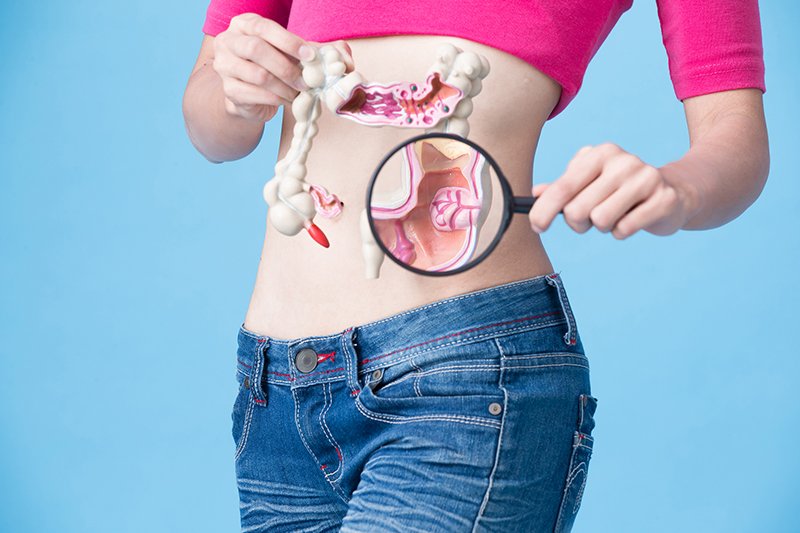Comprehensive Understanding of Colon Cancer: Symptoms and Warning Signs
Colon cancer, also known as colorectal cancer, is among the most prevalent and life-threatening cancer forms. It typically begins with the growth of polyps along the colon wall. While benign polyps may cause mild discomfort, malignant ones can be lethal, spreading and causing significant health issues.
Why Colon Cancer Is a Silent Threat: Colon cancer's insidious nature lies in its difficulty to detect. Early symptoms often mimic less serious conditions like stomach flu or irritable bowel syndrome, making it crucial for adults to undergo regular screenings. Let’s delve into the symptoms indicative of colorectal cancer.

- Constipation:
- Constipation can indicate inadequate fiber or water intake. However, it may also signal colon cancer, as polyps can obstruct waste movement, leading to irregular bowel movements. Persistent constipation warrants a discussion with a doctor about colorectal cancer screening.
- Diarrhea:
- Diarrhea and constipation represent two extremes of bowel irregularity. While often caused by overhydration or illness, persistent diarrhea could be a sign of colon cancer. Polyps or tumors can disrupt waste processing, resulting in frequent liquid stools.
- Oddly Shaped Stool:
- Ideal stool is long, solid, and cylindrical. Deviations from this norm, such as ribbon-like stools, could indicate blockages like polyps or tumors. Frequent abnormal stool shapes should prompt a medical consultation.
- Difficult Bowel Movements:
- Routine bowel movements shouldn’t be painful. Difficulty in passing stool might suggest internal blockages from polyps or tumors, potentially cancerous. Regular discomfort during bowel movements should be medically evaluated.
- Abdominal Discomfort:
- Occasional abdominal discomfort is common and can stem from various dietary factors. Persistent or severe pain, however, might signal a blockage in the colon, possibly due to a cancerous tumor. Especially painful cramps may indicate advanced stages of the disease.
- Blood in the Stool:
- The presence of blood in stool, a common and alarming symptom, can result from minor issues like dietary influences or small tears. However, consistent blood appearance, particularly bright red, could signify tumor-related internal bleeding and warrants immediate medical attention.
- Sudden Weight Loss:
- Rapid weight loss, often accompanying colon cancer, is typically a secondary symptom. It may arise from abdominal discomfort or pain leading to reduced food intake, thereby exacerbating the condition by depriving the body of essential nutrients.
- Frequent Bathroom Trips:
- Excessive bathroom visits can indicate a digestive issue. In colon cancer, tumors or polyps might cause a constant urge to defecate. Such persistent bathroom frequency should be discussed with a healthcare provider.
- Feeling Gassy or Bloated:
- Gas and bloating are common digestive issues. However, in the context of colon cancer, they might be caused by tumors obstructing waste passage, leading to a buildup in the colon. Chronic bloating or gas should be medically evaluated.
- Feeling Tired A Lot:
- Chronic fatigue, while common, can also be a sign of colon cancer. Frequent bleeding from cancerous polyps may lead to anemia, causing persistent tiredness. Regular fatigue accompanied by blood in stool is a red flag for colon cancer.
- Shortness of Breath:
- Difficulty breathing, particularly a slow onset, may be linked to internal bleeding from colon polyps, leading to anemia. This symptom requires prompt medical attention.
- Frequent Urinary Tract Infections:
- While usually caused by bacterial infection, recurrent UTIs, especially involving urgency and incontinence, might indicate colon cancer exerting pressure on the bladder.
- Nausea or Vomiting:
- While these symptoms can have various causes, in colon cancer, they might result from a bowel obstruction caused by a tumor, which hinders the passage of solids, liquids, and gases.
- Enlarged Liver:
- In advanced stages, colon cancer can metastasize to the liver, potentially causing discomfort in the abdomen's upper right part and, in some cases, jaundice due to blocked bile ducts.
- Swollen Lymph Nodes:
- Colon cancer can spread to the lymph nodes, causing swelling or hardness. This lymphedema usually involves fluid retention and swelling near the affected nodes.
Understanding these symptoms is crucial for early detection and effective treatment of colon cancer. Regular screenings and prompt medical consultation upon noticing these signs can significantly improve outcomes.